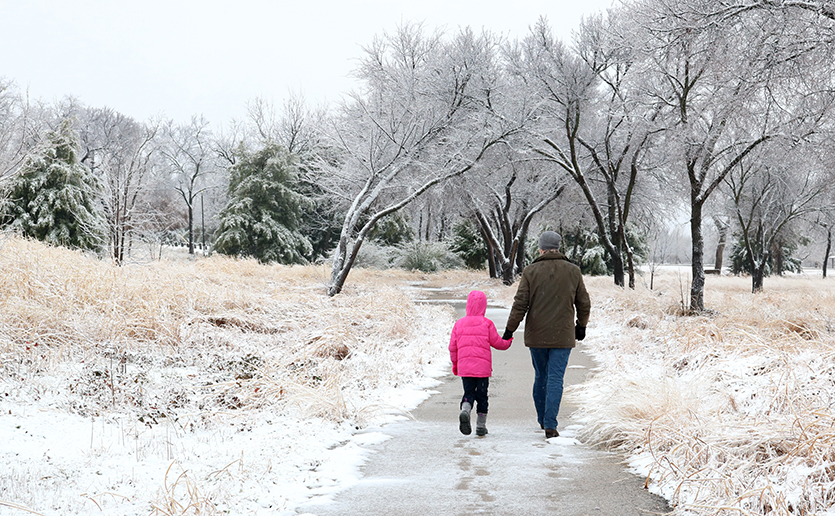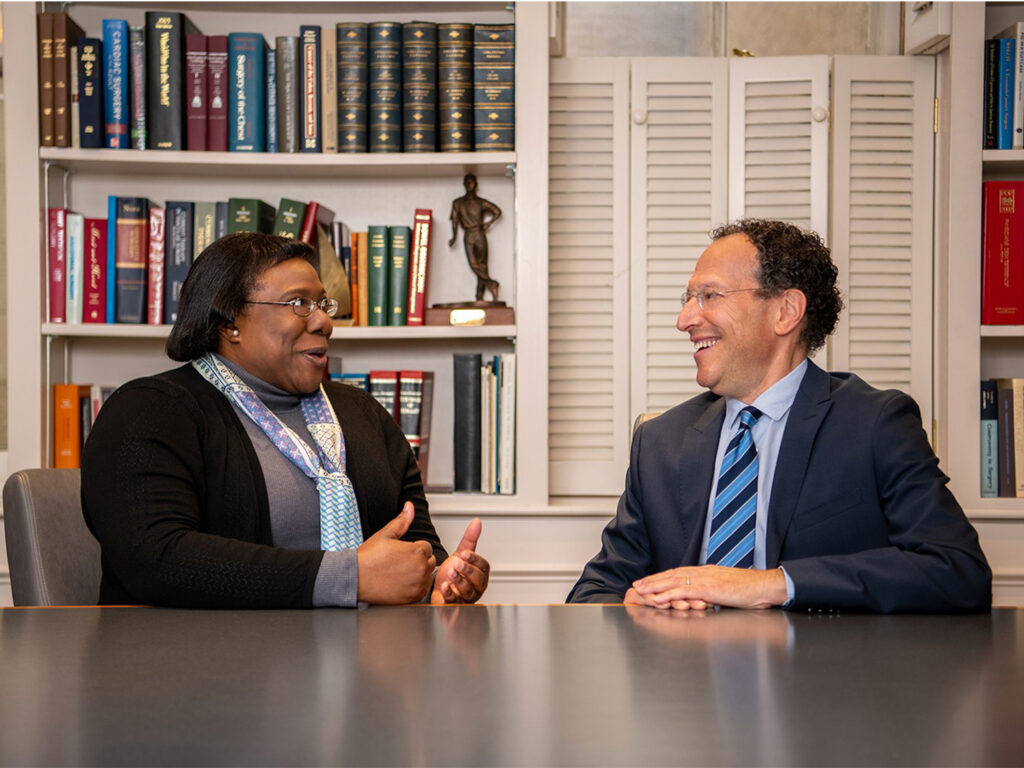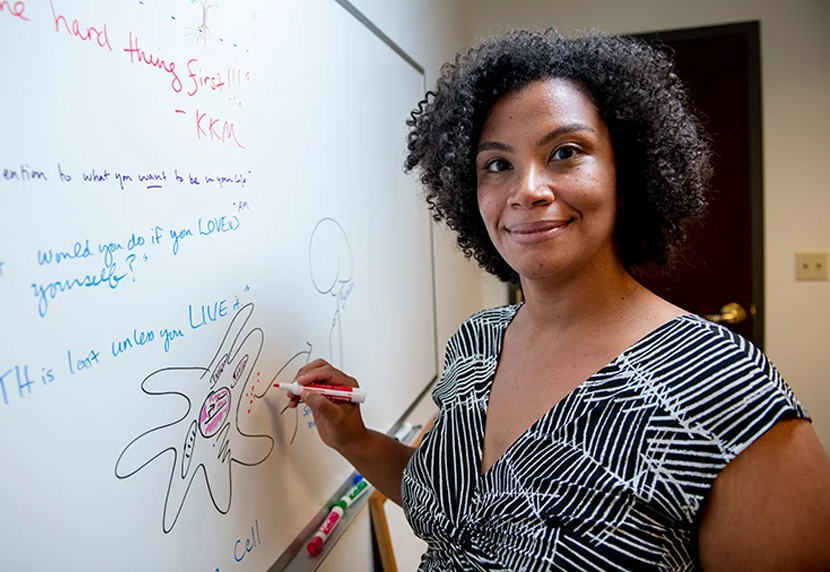The coronavirus pandemic has posed a novel way of life for all of us. Beyond concerns about contagion, prevention, or slowing down its spread, and fears of illness and access to health care, one thing is clear. We are all facing grief and loss. The greatest loss is the tragic death of a parent, grandparent, relative or close family friend. And there are other losses: kids and adults alike share in the losses of school or work, routine, seeing friends and family, missing special events such as birthdays, sports, concerts, prom, graduation and other celebrations.
Younger children may regress and become clingy and demanding, often fearing separation.
Impact of the Loss of a Loved One
The death of a parent or family member is incredibly challenging for children and adolescents. All kids and adults may show signs of grief, not all that different from clinical depression. There may be struggles with mood (sadness, irritability, anger), sleep, concentration, energy and motivation, appetite, and a loss of interest in friends and customary enjoyable activities.
Younger children may regress and become clingy and demanding, often fearing separation. They may have physical complaints such as headaches and stomachaches. Younger kids often cannot appreciate differences between cause and effect, or reality and fantasy. One consequence of this is the potential to blame themselves for the death. They may be told that a “virus” was the cause of death but may still feel they did something to cause it. This feeling may be reinforced if they hear in the news how the disease is spread from person to person.
Adolescents — who are more mature in their thoughts and emotions — may not blame themselves but instead feel tremendous guilt for things they said or did to the relative who is now gone. They may feel distant from the promise of what their future holds. Their experience of the loss may interfere in this important developmental period of building autonomy and independence from family. In light of these factors, teens may become more irritable, argumentative or withdrawn.
Creative arts are highly useful in helping kids cope with loss.
What makes a death during the coronavirus pandemic more problematic is that families are often isolated. Also, if a family member gets sick enough to require hospitalization, most facilities only allow one visitor. Under typical circumstances, families can come together around a dying relative to express their love, to say goodbye, and to be with each other for unconditional support. This pandemic obstructs the important gathering of loved ones as part of the grieving process.
Impact of the Loss of Life Expectations
Beyond loss by death, there are other losses for children and teens. Social isolation is perhaps the greatest loss, and while many are meeting online through Google Classroom, Zoom, or other video chat platforms, it’s not the same as spending time with peers or family face to face. The closing of schools not only makes learning more difficult, it also obstructs normal activities, such as playing at recess for younger kids, or participating in sports, school plays and clubs. Parties, concerts, or just hanging out at friends’ homes are lost. All these activities are critical for social and emotional well-being, and losing them can result in kids feeling depressed, anxious or worried about an uncertain future.
For adults as well as kids, trying to get enough sleep, exercise, practice yoga, and meditate are wonderful ways to stay calm, contained, and quell painful emotions.
Right now, no one knows when or how this situation will end. This may lead to anticipatory grief. Living with an unpredictable situation may lead to anxiety about getting ill, about concerns of a parent or grandparent getting sick, or about potential future losses such as graduation, summer jobs, going to college and more. When kids experience anticipatory grief, they may be on edge without understanding why, feel emotionally out of control, expect the worst case scenario, or withdraw from others.
Tips for Dealing With Grief and Loss
Young people may be in a better place to cope with grief and loss if parents can support them in one of the six ways listed below.
1. Stay Connected
It’s important for kids to find ways to stay in touch with each other and interact socially. This may be done through digital media, and though we typically try to limit screen time, parents should opt for loosening normal rules. Connecting with family and relatives is also important. Feelings of loneliness can be fought with regular contact with friends and loved ones. It’s often a good time for families to play games, watch a TV series, or participate in arts and crafts — things that can be done together, but offer an activity to focus on.
2. Find Ways for Personal Expression and Immersion in the Arts
Creative arts are highly useful in helping kids cope with loss. Self-expression through journaling, drawing or painting, playing music, writing poetry, dancing, or any other art form of self-expression help us cope with loss. It’s also useful to listen to music, watch movies and TV series, or read to take one’s mind off of the current anxiety and engage in an emotionally captivating diversion.
3. Practice Self-Care
For adults as well as kids, trying to get enough sleep, exercise, practice yoga, and meditate are wonderful ways to stay calm, contained, and quell painful emotions. There are many resources online and plenty of time during this period of isolation and limited school days for young people to learn new ways to take care of themselves. Doing some of these activities as a family not only promotes wellbeing for the individual but connects us in powerful ways.
Don’t assume you will increase your child’s anxiety by talking about the pandemic. Ongoing conversations are not only valuable in lessening negative emotions, but help you as a parent know what your child is struggling with.
4. Modify Troubled Thoughts
In times of stress, it’s typical for our thoughts to become exaggerated or even distorted. At the far end of the spectrum is “catastrophic” thinking – thoughts focused on morbid or terrifying events. Such thinking has a profound negative influence on our emotions and can lead to significant anxiety or depression. Cognitive Behavior Therapy (CBT) has been extremely helpful in reframing powerful negative thoughts to ones that are more positive and realistic.
Here’s a good example: when Hurricane Katrina struck New Orleans, thousands were homeless and lost virtually everything. It was natural for a young person to think, “This is the end of the world. My life is ruined.” Using CBT, a caregiver can help a young person re-craft the thought: “It is a terrible situation, and we can’t change what happened. But we have each other, we found our doggie, and we will get by.” CBT never involves denying what is true. However, it can help turn exaggerated thinking into something more realistic and positive. This can reduce the intensity of negative emotions and thinking.
There are also other ways to change overblown thinking and feeling: through mindful meditation, we can learn to focus on a peaceful image, a place where we feel safe and relaxed, and learn to quell disastrous thoughts and overwhelming feelings of anxiety or depression.
5. Have Ongoing Conversations
Parents should routinely and openly check in with their kids – about their emotions, thoughts, questions, and behavior. Don’t assume you will increase your child’s anxiety by talking about the pandemic. Ongoing conversations are not only valuable in lessening negative emotions, but help you as a parent know what your child is struggling with. Ask questions with curiosity and compassion, and when your child responds, use the opportunity to validate their feelings, avoid judging what you might not understand, and continue asking your kids questions with curiosity and compassion.
6. Develop a Daily Schedule
This time of isolation and an upheaval of our daily routines is not only disruptive, but breeds boredom, frustration, and may derail our thoughts and emotions. Kids thrive on structure. Do your best to create daily schedules with specific times to have meals, do schoolwork, exercise or meditate, allow for socialization at a distance, and have unstructured free time. Schedules will, of necessity, vary from household to household – be realistic and creative about what makes sense for your family. But it is important for everyone’s well-being to agree upon a daily schedule that keeps us all busy, productive, and engaged.
Transforming Grief and Loss into Positivity
No one can take away the fact that a death or loss of enjoyable activities are hard to endure, especially for children and teens. Yet, recall the saying, “out of the ashes rises the Phoenix.” Many kids will not know what this means, nor that it came from Egyptian and Greek folklore. Perhaps exploring this with them will be engaging!
If you have a family member or friend who is struggling or has lost a loved one, reach out with your kids.
Dreadful situations such as the coronavirus pandemic can be useful for parents to teach young people about positive psychology. A parent might ask: “What can you learn from this extraordinary situation, and come out even stronger on the other side?”
1. We Can Appreciate What We Take for Granted
It takes a situation like this for us to remind our kids how fortunate we are to have time with friends and family. Tell them you love them. Write them or text them words of gratitude and hope. And then, try not to forget what they mean to you after we get through this situation.
2. We Can Learn How Vital Support Is: We’re All In This Together
Parents should remind young people that we are all in this together. Many kids are feeling bored, isolated, or anxious; many parents are struggling to balance home schooling and child care, while also maintaining the household with remote work or for essential personnel, going out as first responders, and other important roles. Many are overwhelmed with Zoom fatigue, and others are frustrated of living in isolation and with uncertainty. In short, while every family will have different struggles, we’re all feeling the loss of life as we knew it before COVID-19.
It can helpful to share your stories and feelings during this crisis with your kids. Your narratives may validate their experience, especially when young people are feeling alone or helpless. But, also be mindful not to diminish their current experience and feelings. What’s going on right now is really tough, and it’s going to be tough for a while. You can be a support by working to accept where they’re coming from.
Some children could give to others safely by offering volunteer tutoring, or teaching a craft such as drawing, painting, playing an instrument, or knitting.
If you have a family member or friend who is struggling or has lost a loved one, reach out with your kids. Connect. Together, you could send a homemade digital card, or a YouTube video with a song or poem. Social support is a wonderful gift and a lifelong lesson for your kids.
For parents who themselves are feeling isolated, there are also a number of online parent support groups to meet with other parents going through similar situations.
3. We Can Make a Contribution
Encourage your kids to chip in. While kids are not in a position to make a financial contribution for those who are struggling to put bread on the table, they can offer a lot to communities in need. Going online and sharing concerns, writing messages of hope, creating works of art or poetry, or music can be uplifting in many ways. This was true after the tragedy of 9/11, in other terrorist acts, and in natural disasters such as Katrina. Some children could give to others safely by offering volunteer tutoring, or teaching a craft such as drawing, painting, playing an instrument, or knitting.
Here is one of our favorite stories, sent to the Clay Center recently. It is a story of loss, resilience and hope during the pandemic:
“It’s been 4 weeks at home. Freshman college student had 4 days to move out and return home from an out of state college, and 5th grader had to adjust to online learning. We take it day by day. I remind them of their resilience and character that welcomes each day, and we talk about our family values a lot during dinner to help anchor themselves to smaller things. Every Sunday we have a poem share to a random topic that one parent selects, which is followed by karaoke so we can end the week with humor. Oddly, we have not missed one Sunday yet.”
— Sonja, parent of a college freshman and a 5th grader
We all need to know we are not alone. And we need to remember that We Can Manage This.
To donate or learn more about the Clay Center, please contact us.
This story first appeared on the Clay Center’s website.

Gene Beresin, MD, is executive director of The Clay Center for Young Healthy Minds, and a child psychiatrist at Massachusetts General Hospital. He is also a professor of Psychiatry at Harvard Medical School and senior educator in child and adolescent psychiatry at Mass General. As a clinician and educator with more than 40 years of experience in working with youth, Dr. Beresin focuses on prevention, early intervention and treatment of teens and young adults.





